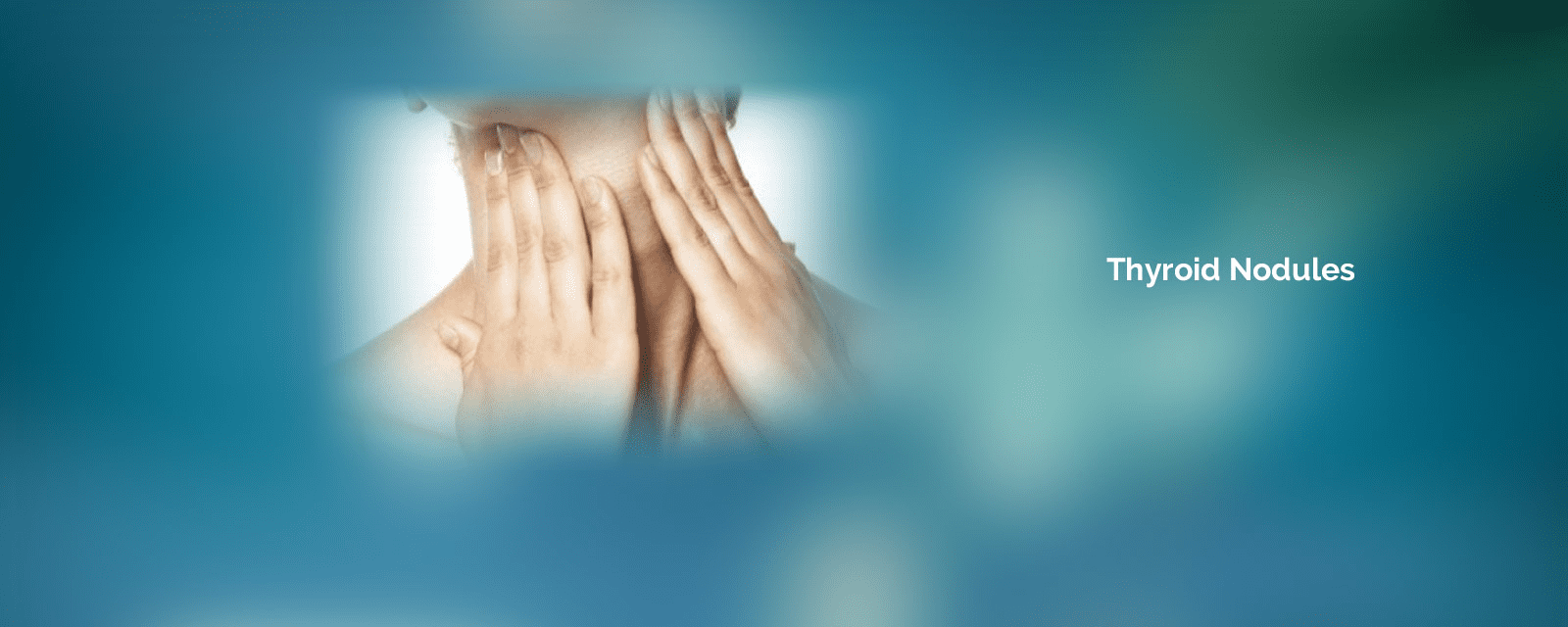Thyroid nodules are lumps, which are either solid or filled with fluid, that form in the thyroid gland. Most nodules aren’t malignant and are no cause for concern. They are very common, with around 10 million cases reported in India every year. Thyroid nodules are more likely to occur in women than men, and mostly effect people within the age of 20 to 60. Thyroid nodules won’t be found until a doctor discovers them in a routine medical check-up.
Thyroid nodules are mostly without symptoms. Large nodules, however, can:
- Be felt
- Be seen as a swelling in the neck
- Press on the oesophagus or windpipe, causing symptoms like shortness of breath or difficulty in swallowing
Sometimes, thyroid nodules can produce extra thyroxin, inducing hyperthyroidism symptoms like:
- Weight loss
- Increased perspiration
- Tremors
- Irregular and accelerated heartbeat
- Nervousness
Most thyroid nodules are benign (non-cancerous) and cannot be seen or felt. But if they are large, and/or cause any of the above mentioned symptoms, you should consult a doctor. Always trust premier medical institutions like Paras Hospitals Group, which have different specialized departments for the treatment and care of various conditions.
There are several conditions in which a thyroid nodule could form, they are:
- Iodine deficiency, which can cause nodules to form.
- Overgrowth of normal thyroid tissue, in which case the nodules are large, and cause hyperthyroidism symptoms
- Thyroid cyst
- Inflammation (thyroiditis)
- Goitre
As for risk factors, thyroid nodules can happen to anyone, but are more likely when:
- A person is old
- A person is female
- A person has a family history of thyroid nodules
Thyroid nodules can also be malignant, if:
- A person has had radiation therapy in the past
- A person has a family history of endocrine cancers
- A person develops thyroid nodules below 20 years of age, or above 60 years of age
- A person is male
- A person has history of Hashimoto’s thyroiditis
If the nodules are not causing any problems, it is unlikely that your doctor will take any steps towards treatment. If it is, then you’ll have to take medication, or may have to go for surgery. In case the nodules are causing hyperthyroidism, anti-thyroid medicine or radioactive iodine will be given. Surgery will be needed if the thyroid nodules are so large that they are causing breathing problems. It may also be needed if the nodule is cancerous. After surgery, radioactive iodine will be given to destroy any thyroid tissue left. If the whole thyroid is removed, you’ll have to take thyroid hormone for the rest of your life.



 Call us at
Call us at